Planetary & Space Sciences
Our research covers a wide range of Solar System science and exploration. We investigate the origin and evolution of the Solar System, through the physical, geological, chemical and biological processes that drive it. We use laboratory and space mission experiments, remote observation, environmental simulation and modelling to investigate the surfaces and atmospheres of the terrestrial planets (particularly Mars and Mercury), the Moon, asteroids, comets and extraterrestrial materials.
Research activity in PSS is funded mostly by the UK Science & Technology Funding Council (STFC), the European Space Agency and European Union, but also draws in support from other research councils, charities and industry.
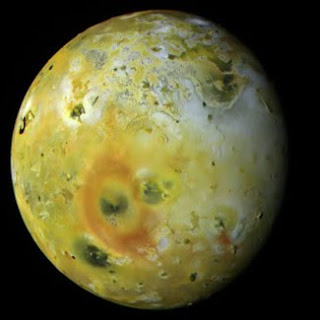
PSS has a long history of involvement in Solar System exploration through the exploitation of instruments developed at the OU and through international collaborative teams. PSS members are active in the development of new mission proposals and studies with ESA, other space agencies and national programmes. In addition we make use of international ground- and space-based observatories as well as in-house laboratory and simulation facilities. Research students are involved in all aspects of PSS research.
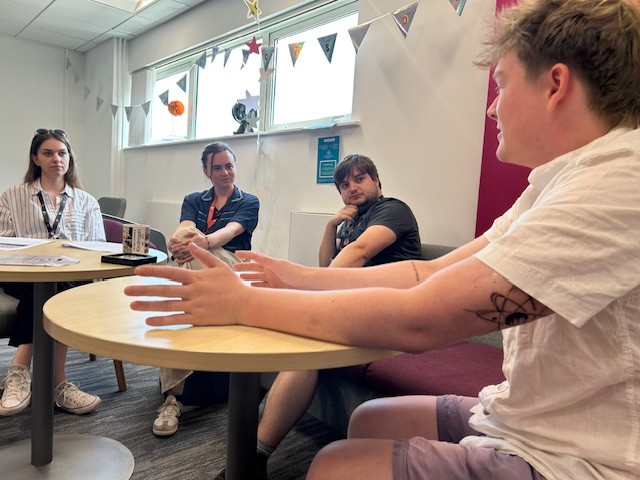
A Thursday morning "PS Chat" session
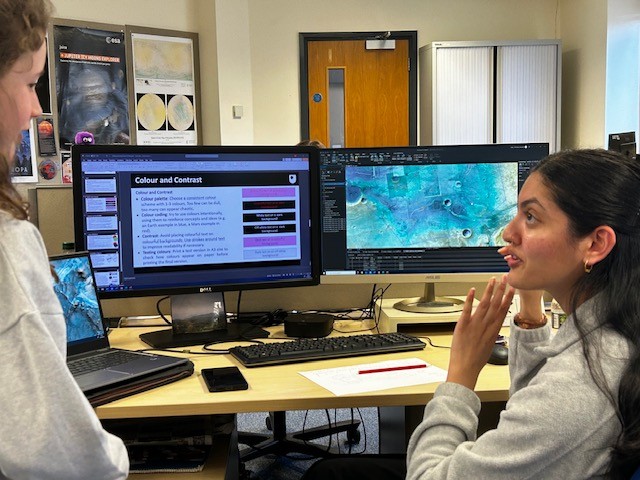
Showing a young visitor what we do
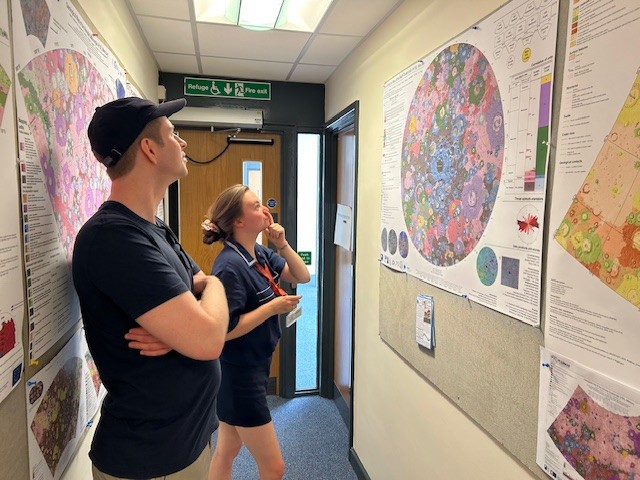
Consulting some of our planetary maps
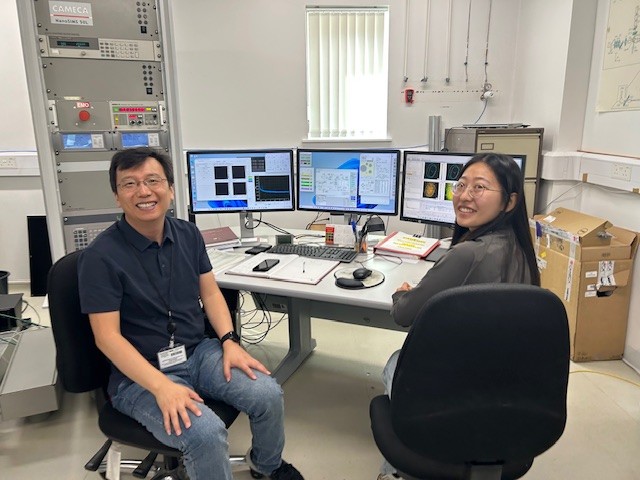
Happy NanoSIMS users
Our extensive laboratory facilities are broadly sub-divided into those used to characterise the chemistry and isotopic composition of matter in the Solar System or the simulation of Earth and Planetary processes. Instruments include start-of-the-art commercially sourced (e.g. NanoSIMS; FIB-SEM; laser Raman microprobe; MS and GC-MS) as well as unique instruments developed in-house (e.g. ‘Finesse’ mass spectrometer; Mars atmosphere and surface simulation chambers; Cometary surface simulation chamber; All-Angle Light Gas Gun).
These are backed up by clean rooms and sample preparation facilities, instrument development laboratories and an extensive meteorite collection. We also run projects reliant on computing facilities, for example geographic information systems (GIS) studies of planetary geology and landscapes, and atmospheric circulation models. Students have access to analytical facilities across the faculty, as well as the University research computer cluster.
We have a vibrant community of research staff and PhD students, with regular opportunities for those interested in Planetary Sciences. Members of PSS contribute to a range of undergraduate courses - reflecting the multidisciplinary nature of PSS research.
Academic Staff:
- Prof Mahesh Anand
- Prof Matt Balme
- Prof Ian Franchi (emeritus)
- Prof Monica Grady (emeritus)
Research Fellows and PDRAs:
- Dr Juan Alday
- Dr Alex Barrett
- Dr Maureen Cohen
- Dr Elena Favaro (visitor)
- Dr Peter Fawdon
- Dr Richard Greenwood
- Dr James Holmes
- Dr Ben Man (visitor)
- Dr Paul Streeter
- Dr Ben Rider-Stokes
- Dr Ben Rozitis (visitor)
- Dr Lee White
- Dr Jack Wright (visitor)
Project officers:
- Dr James Cole
- Dr Hannah Chinnery
- Dr Zoe Emerland
- Dr James Mortimer
- Dr Matt Sylvest
